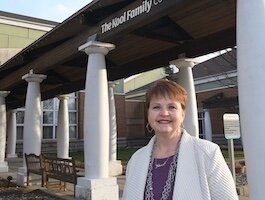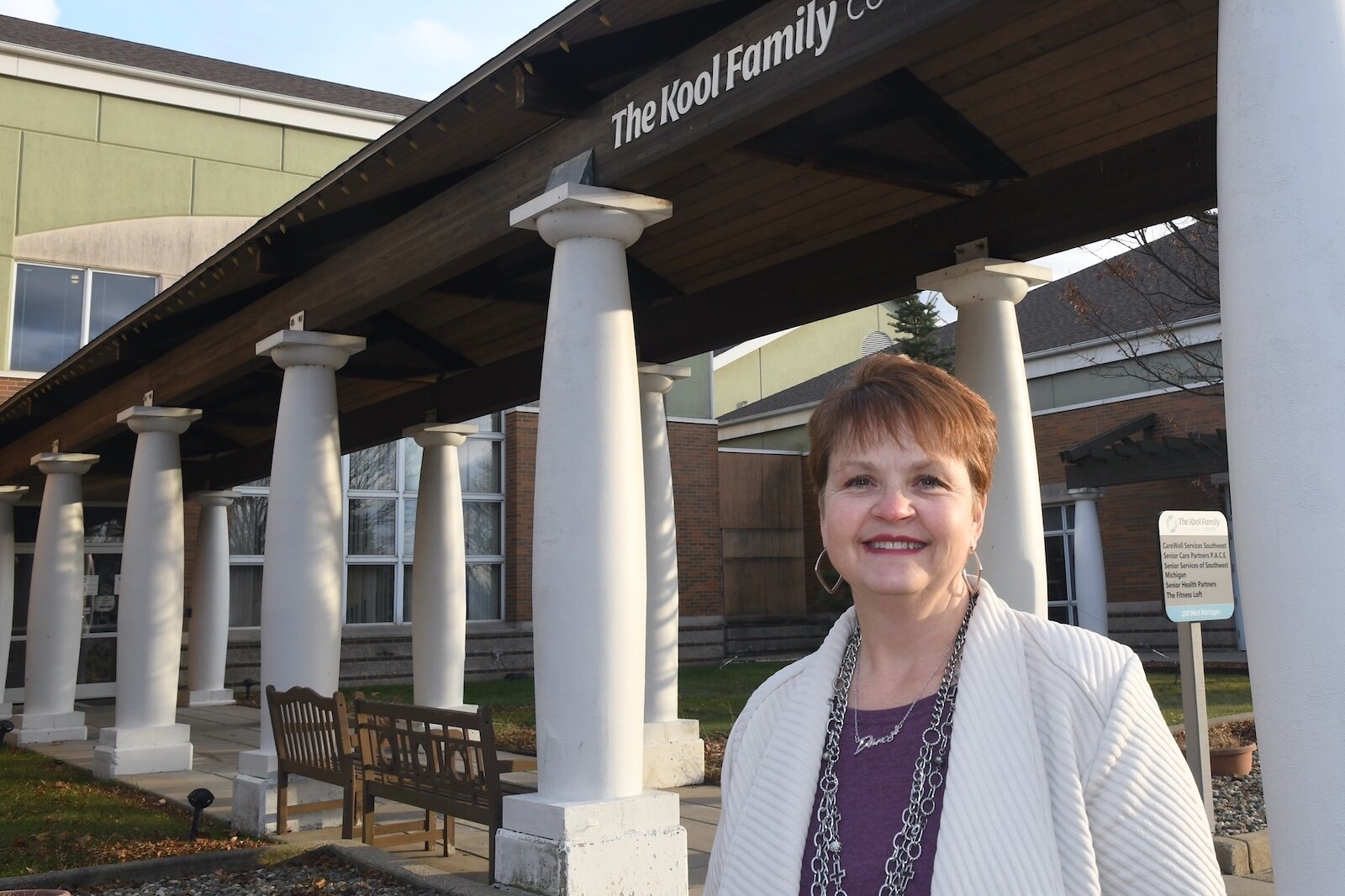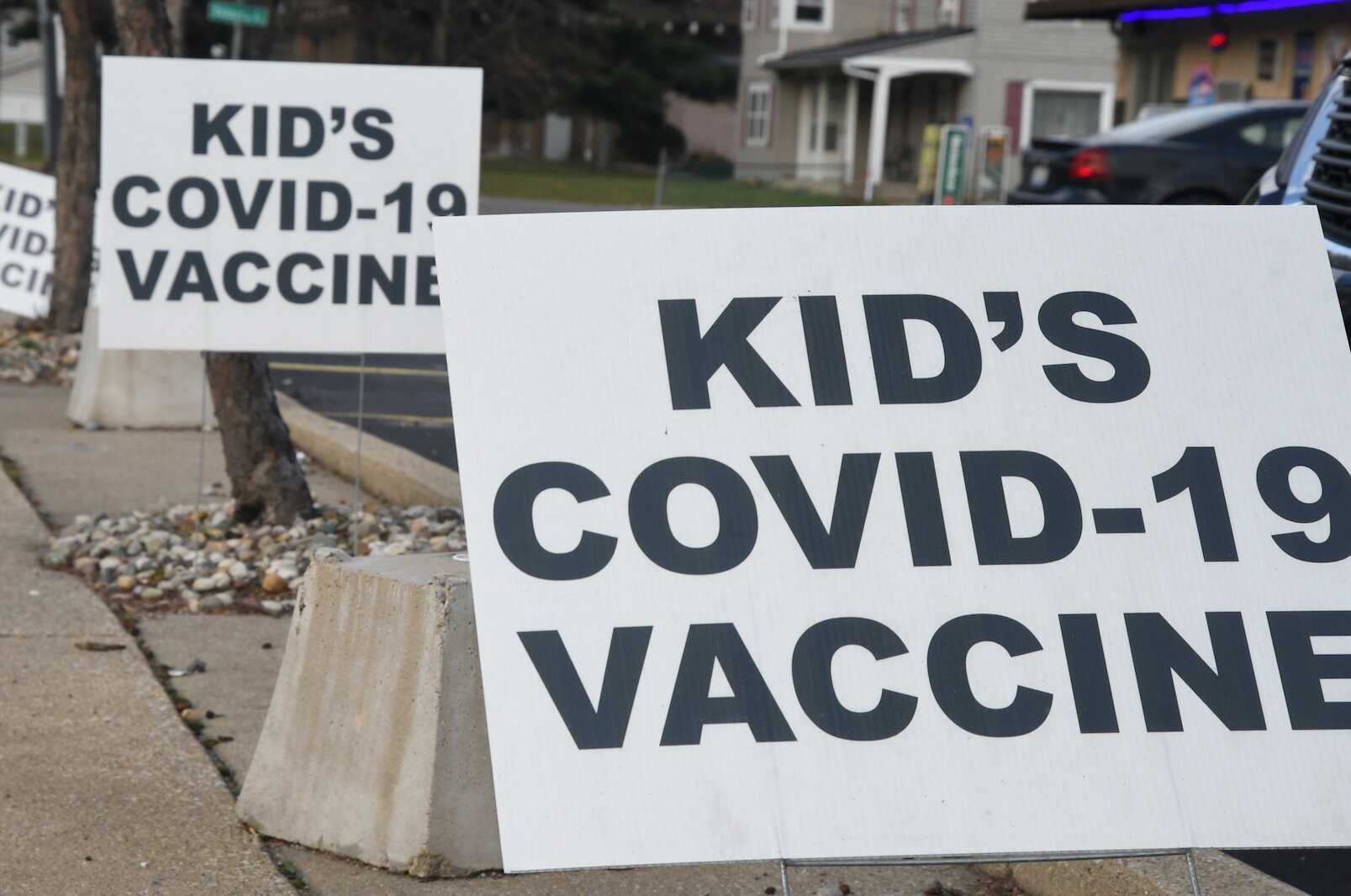Editor’s note: This story is part of Southwest Michigan Second Wave’s On the Ground Battle Creek series and our ongoing COVID-19 coverage.
As people navigate family holiday gatherings that will include the vaccinated and unvaccinated, anxiety is increasing for some and being felt for the first time by others, says Marilyn Strobel, a psychologist with the Life Coach Psychology practice in Battle Creek.
Typically, she says, the busiest week of the year for her and her fellow clinicians is Dec. 26 to Jan 1 because holidays trigger negative emotions for people. But, this year the volume of calls began picking up in October from those seeking a neutral space to vent their concerns and frustrations about family holiday gatherings that have the potential to put their health at risk.
Based on discussions Strobel has had with clients, there appears to be polar opposite points of view with very little room to negotiate.
“One is, ‘I don’t understand why we have to fuss with all this’ and the other is, ‘I really feel the need to protect myself and my children.’ There’s not a middle ground,” Strobel says. “Some people are more vehement about why they’re on one side or the other when it comes to their vaccination status.”
She recently had a conversation with a client who had attended a family Thanksgiving with her husband, who has a life-threatening disease, and a child and in-laws who had not been vaccinated.
“She made a decision that family is more important and went,” Strobel says of her client. “I would say that about 40 percent of my clients are of the mindset that they’re willing to take that risk and the remainder will take all of the precautions that they can. If you’re going to see family, you’re going to do what you need to do. Because family is more important than anything else, people will go to great lengths to preserve that connection, which I support as long as it’s not done foolishly.”
Her advice is to wear a mask, maintain a six-foot distance, and observe all of the other safety protocols while also avoiding discussions that could lead to a disconnect. Strobel says she encourages her clients to stay away from talking about their reasons for wearing a mask or for not being vaccinated during gatherings with family because “this could lead to hurt feelings and is a waste of time.”
As much as she wanted to, Karla Fales says she did not admonish unvaccinated and unmasked family members who had gathered for a recent family Christmas celebration at her in-laws’ home. This was a remarkable show of restraint from a woman who in her role as the CEO of CareWell Services was promoting the benefits of the vaccines before they were even available.
“We had the family Christmas and the majority of our family are vaccinated but we have a couple of members who are vaccine-hesitant and it was definitely hard,” Fales says. “I debated whether or not to go, which would have broken my mother-in-law’s heart. I thought, ‘How do I manage this and deal with my own anxiety in that regard?’”
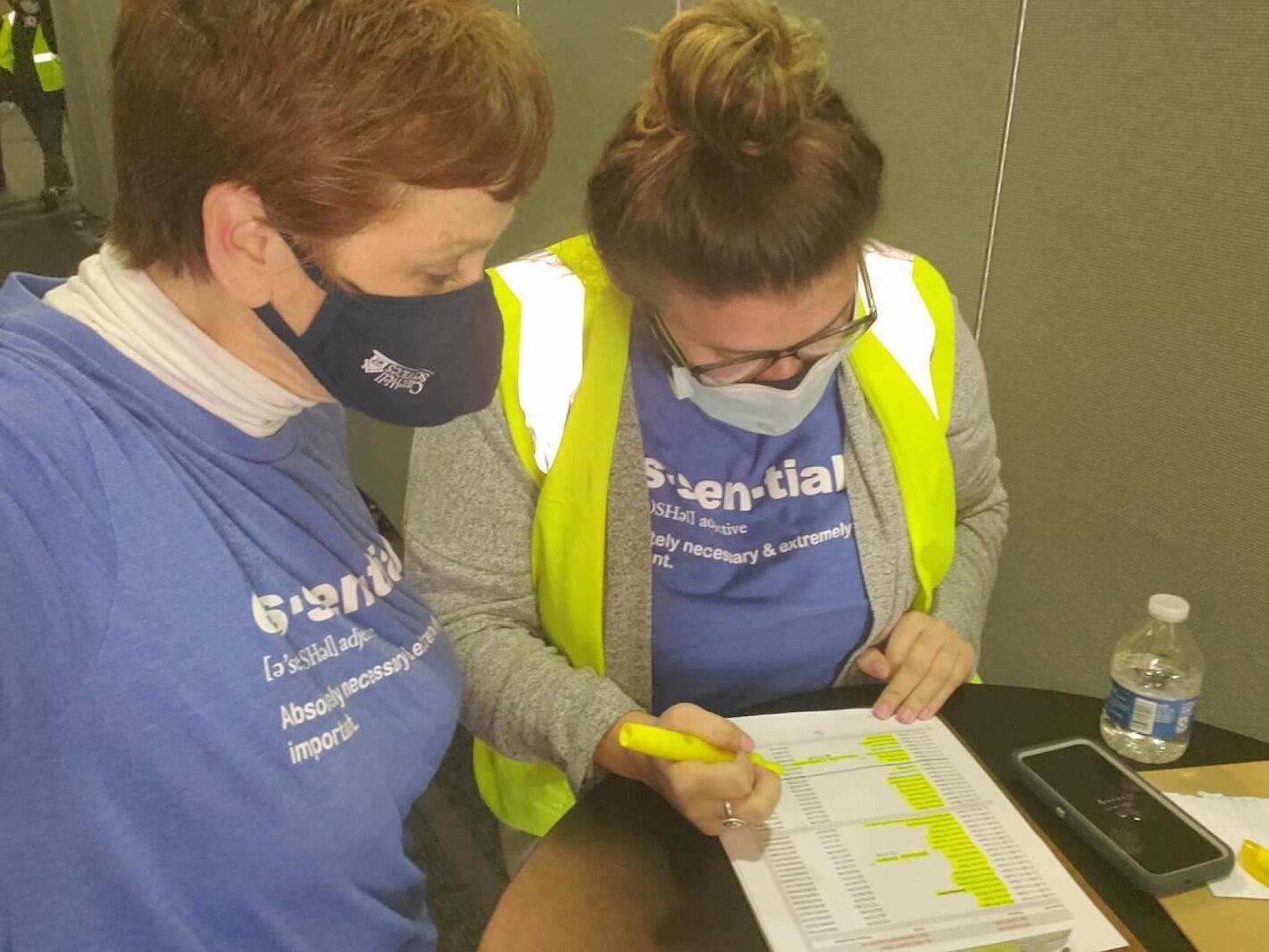
She ratcheted down her anxiety level by going early so she could have quality time with her in-laws before other relatives showed up. She also helped with prep work and cleaning.
“During the event I just kind of kept my distance. There were not a lot of hugs or getting down on the ground and wrestling with nieces and nephews,” Fales says. “Their house isn’t huge, so I made sure that the windows were open a little bit. We practiced safe food handling with the littles and I didn’t stay as long as I normally would have. That’s how I could manage it and stay comfortable.”
She relied on similar tactics when she hosted this year’s family Thanksgiving. The games and other activities that would normally have gone well into the evening did not happen. Fales says family members were asked to grab a plate with their food and go to the area that had been set aside for them.
“Everybody ate their food and left,” she says. “We shifted our expectations, I guess.”
Not a tightrope, more like a field of landmines
In spite of this, Fales, who also serves in another very public role as one of Calhoun County’s Vaccine Ambassadors, says she still has a “very hard time” with family members who refuse to get vaccinated and likens her time with them to navigating around landmines.
Her niece, she says, prefers to follow social media and the “false information out there” with regard to the virus and the vaccines. She also has a son who isn’t vaccinated who is the father of two of her three grandsons, who also haven’t been vaccinated.
“He has lots of theories he subscribes to,” Fales says of her son. “I worry about my grandbabies. I have one grandson who likes to sneak drinks of my pop and I’ve had to have conversations with him and explain to him that he’s not vaccinated and he could get sick. These are hard conversations when you’re on the other side of it.”
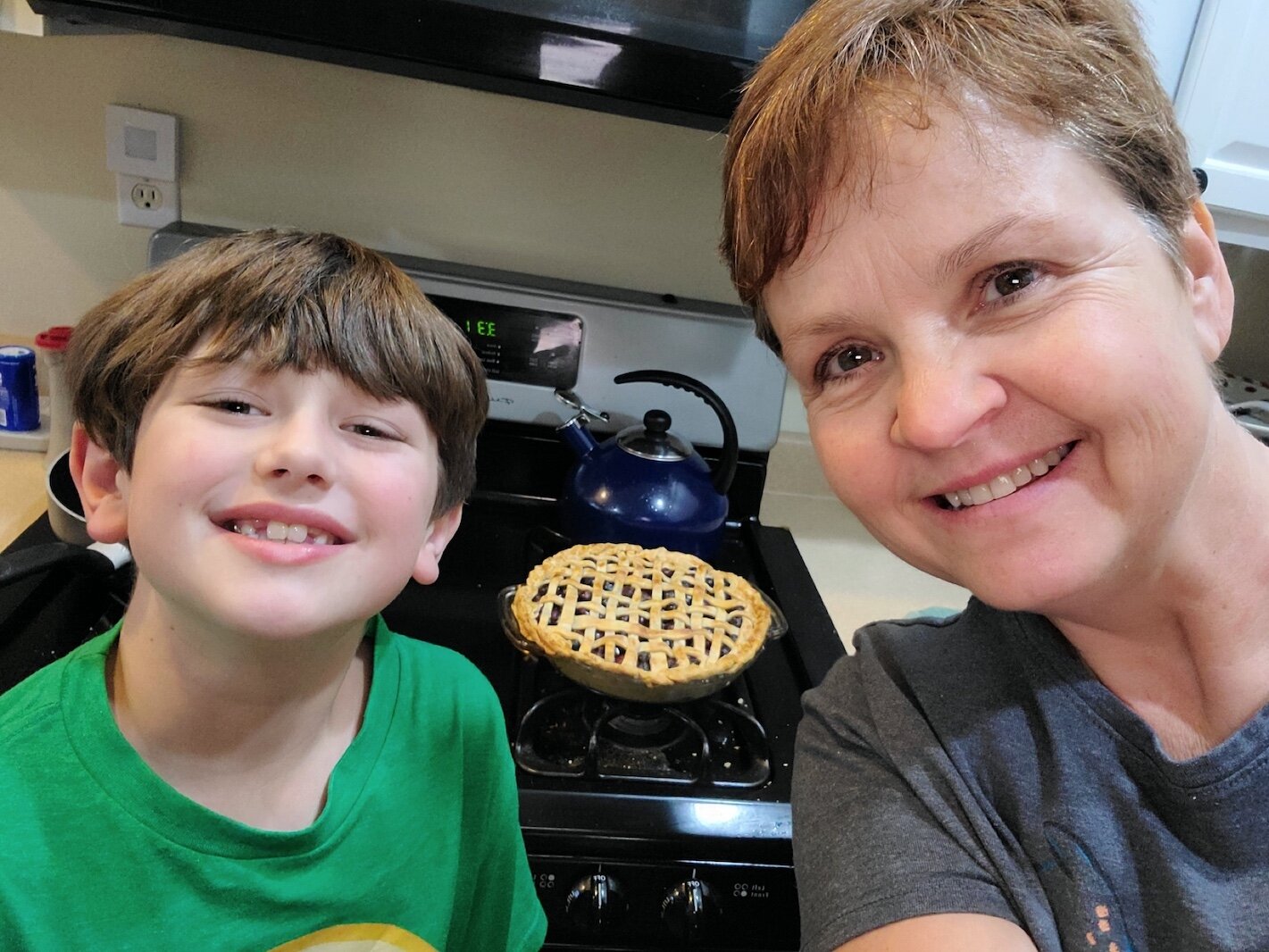
Equally as difficult is not being able to have all three of her grandsons together at her house. She says their vaccination status has changed the way they interact with her and each other.
“The bad part is we have to find other ways to connect because we can’t do things like snuggling on the couch,” Fales says. “My risk is minimal, but I still take measures and precautions to make sure it doesn’t happen.”
This includes taking a COVID test before attending an event.
“I’m not going to put anyone into a situation where I could create suffering for them. It’s counter to my work and what I believe in,” she says.
She also is not going to let her personal feelings create divides within her family. She says she knows that she isn’t going to change the minds of family members who still haven’t been vaccinated, but says she was encouraged by a few who “may not have wanted to take the vaccine, but because of interactions with grandma and grandpa, they chose to get it.”
This was not the outcome for a 91-year-old woman working with Deanna Keith, a therapist with Life Coach Psychology. Prior to joining Life Coach two years ago as a therapist, Keith had a 30-year career as a Social Worker in assisted living and long-term care facilities.
Keith says her elderly client, who has been vaccinated, was afraid of the consequences of being exposed to the rest of her family, none of whom have been vaccinated. When she became fully vaccinated, she would limit her interaction and if she attended a grandchild’s sporting event was able to be six feet away from other people.
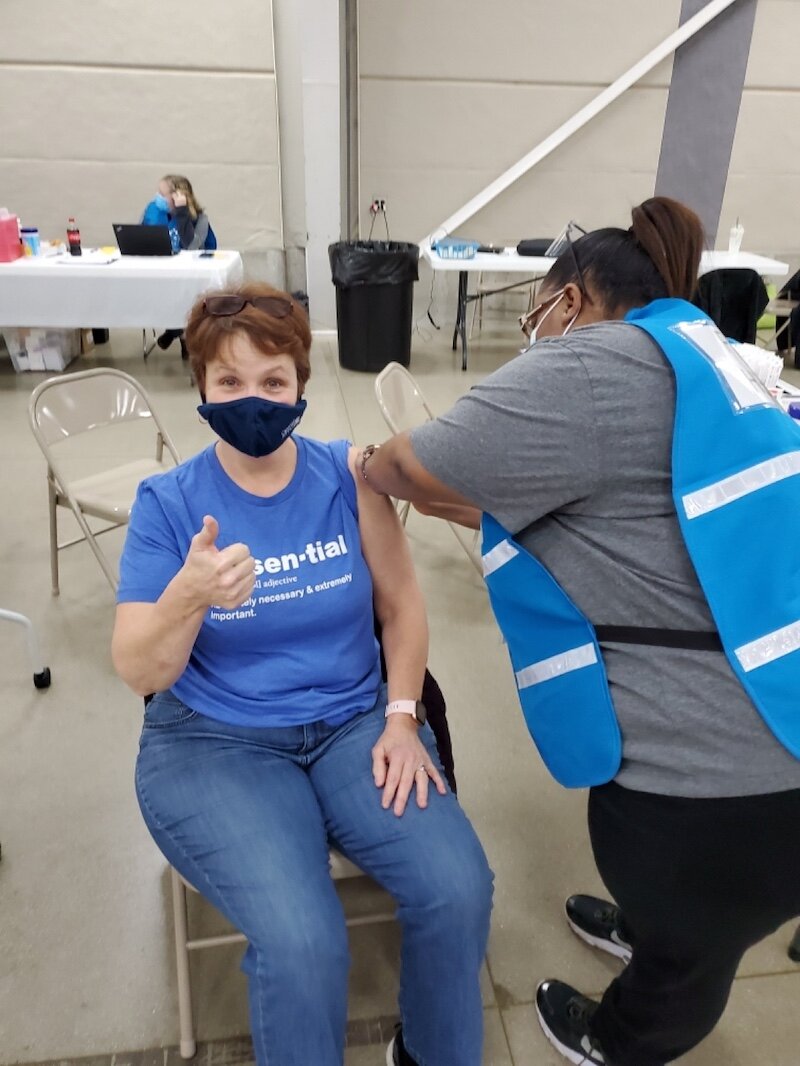
“Her entire family is opposed to any discussion about it and basically said, ‘Oh grandma, we’re going to be OK.’ That’s when she started saying that she couldn’t attend birthday celebrations or other family events,” Keith says.
“Most of the problem lies in deep-rooted values that are core values and family members saying that my core values aren’t lining up with yours even though we’re in the same family. There’s all of this deep-rooted moral stuff that goes with it and you have to talk about that, which means you have to open up this whole array of conflict. Many people are deeply embedded in this idea that it’s a conspiracy. It’s not real. She tried to tell this to her grandson and he said, ‘Grandma, Jesus will protect me.’”
Because this woman relied on her family members to get around, she eventually ended up making concessions, despite the potential risk to her health.
“She had to basically compromise in terms of saying I need help and my family is against this and I’m going to have to take the risk,” Keith says. “At some point, her family just started wearing her down on the issue.”
Keith has her share of clients who won’t get vaccinated because they’re afraid of the vaccine and are upset because their family members won’t let them come over.
Choices and decisions driven by COVID fatigue
The wider availability of vaccines and booster shots is enabling many families to discuss how they will navigate holiday gatherings. Many are not willing to forego another year without a family celebration, Keith says.
“People have this COVID fatigue. They’re getting pressure from people and they’re tired of missing out on things. Overall, we’re all just tired of missing things,” she says. “With more holidays coming up, if someone doesn’t want to be vaccinated that’s their choice. (If that is the choice) can they get rapid tests to make sure they’re not carrying it and would that be a compromise? People say, ‘I want to see my family, but I don’t want to get into these arguments.’ Some people will say they will mask up and have the kids stay in this room and adults stay in another room.”
Avoiding divisive discussions can create divisions, too, as was the case with another of Keith’s clients who told her mother that because of COVID she and her husband were going to stay home with their children. While all but one member of her family had been vaccinated, neither of her parents were and she didn’t want to take any risks.
“Then she gets guilt from her mother because she can’t see her grandkids,” Keith says.
Keith says she advises people to communicate openly and honestly and make sure that everyone who should be consulted is consulted so that all of the key players are involved in the conversation and no one feels left out. She also suggests making it a positive discussion by letting family members know that spending time with them is important to you.
“If you’re hosting, can everybody get tested? For those who refuse to get vaccinated, can they have boundaries about who’s in what room and who’s doing what? And can we agree to not have grandma come?
“Let them know you’re proactively doing this because you care. It’s about the fact that we’d feel bad if somebody got sick and if people have concerns about various things like ‘I’m afraid to get the vaccine’ try to keep the emotional and political stuff out of it,” she says. Kieth is convinced that the majority of people in these situations want to see people in their families even though they are not vaccinated and are willing to take the chance. “They’re tired of strong points of view and not seeing each other.”
Family is more important than any political stance, Strobel says.
“I tell my clients to respect the decisions made by other family members because everybody makes decisions many times a day that are potentially irritating to another person,” she says. “I also float the idea of doing a Zoom call if in-person won’t work.”
Fales says her emotions have run the gamut with family members who refuse to get vaccinated, but she says not gathering with them is not an option.
“We all have situations that rewire us to engage in risk,” Fales says. “To me, it’s always an issue of managing that risk and controlling what I can control and preserving relationships to the extent that I can. I get discouraged, angry sometimes, disappointed, frustrated, and scared. I’ve dealt with all of those emotions. It’s about taking control of what you can take control of and finding other ways to connect.”

